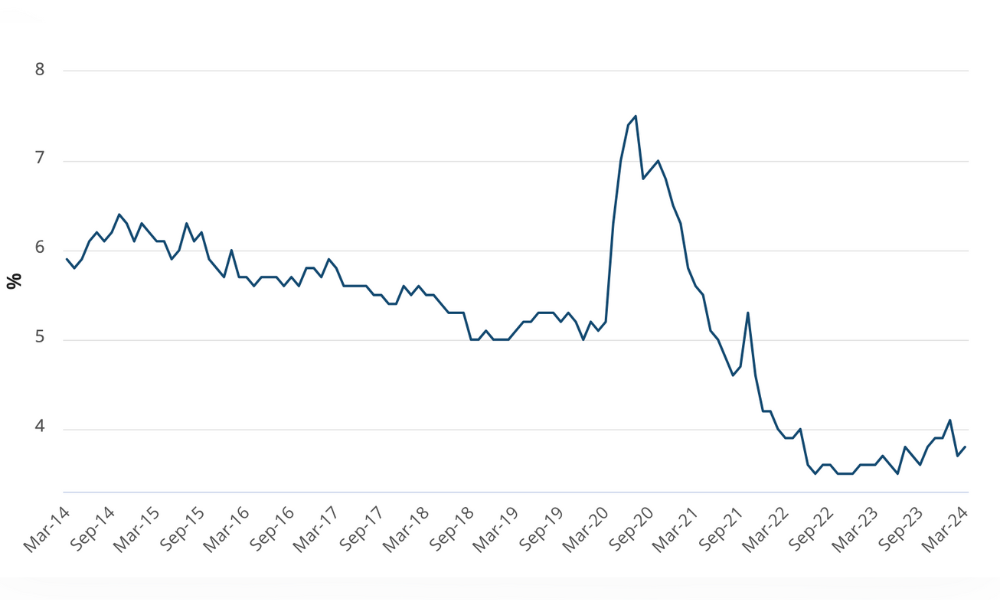A crisis shouldn’t kill your culture – if you’re clear about what you want it to be that is

How will 2020 impact your company culture?
From our chat with two leaders at Asia Pacific Breweries Singapore (APB), the impact may not necessarily be as dire as you’d think – if you’ve got the foundations in place and have a clear direction of what you want that culture to be.
APB is the company behind Singapore’s acclaimed Tiger Beer, and marketeer of alcoholic brands such as Guinness and Heineken. The beer business might come across as a traditionally male-oriented business. In reality, women make up 40% of APB’s leadership team, including the senior management team.
One of whom is SJ Heng, sales director at APB and a new addition to the firm’s management team of nine. She joined APB early this year and is accustomed to “breaking conventions” in her career – but she told us APB was simply “a natural step” for her and not especially daunting.
We also sat with Shaun Ee, HR director at APB, who explained that COVID-19 crisis or not, the company had made plans to drive their diversity and inclusivity culture further this year, with workshops already in place since early 2020 strengthening multiple facets of D&I – not just gender.
“It’s about how you respect each and every one of your colleagues,” Ee said. “Diversity really makes for better business.”
Heng and Ee shared with us their insights into APB’s culture of inclusivity and how their different roles play a part in the grand scheme of things.
READ MORE: How to create a strong culture in a remote company
HRD: What are some practical steps organisations can take to sustain a genuine culture of diversity an inclusivity?
SE: As an organisation, we make sure that it’s not simply about metrics – but we do put some metrics around D&I. [For example] we monitor the [diversity] ratios within the organisation just so that we are kept aware of the issue.
At the same time, we have yearly studies where we ask people questions like, ‘how comfortable are you in your work environment? Do you see equal opportunities to move [in your career]?’ From there, we’re able to tell how the people on the ground are feeling.
That’s when we start putting things in place. We address any opportunities – not just for inclusivity and diversity – but everything else around it.
Then we ask ourselves what really matters to ‘bring’ them into the business. It’s not just about revenue, sales and profitability metrics, but it’s also about people and what is it about people that’s important.
If you want to have engagement, you want a workforce that’s inclusive and diverse – so you monitor that. Naturally, you would have other metrics like turnover and time to recruit to monitor. But we really need to ask ourselves what is key for the business and identify those as metrics.
SH: I also believe that people draw on the business’s role. So, in all our management team meetings, a simple thing that we do is we always talk about people first. Then, other business topics come in.
For instance, when I talk to my managing director during our weekly sessions, people issues are the first topic, and then the business comes next, because fundamentally when your people are engaged and energised, results will follow.
SE: Yes, we actually set aside a day specifically just to talk about nothing but people issues. It’s not something common because most times when you have leadership discussions, the management really want to talk about the business. Here, people issues really is number one on the agenda.
HRD: Driving a D&I strategy requires the support of the entire organisation. How do you maintain accountability at the leadership level?
SE: We always hear ‘what gets measured gets done’. Each of our leaders have a metric in their performance appraisal that relates directly to people. It is something that they’re able to control.
We specifically went down this path because we believe as a leader, yes, you’re accountable for the business but a big part of that is whether you’re able to take care of the people. Only then will the business take care of itself.
Now, obviously there’s a chance that line leaders may feel, “I don’t have any control. I don’t have any influence. Therefore, it doesn’t matter to me”. We didn’t want that to happen and that’s why we made sure that managers are in control of whatever people-related metrics we put in.
That makes it relevant for them, they can see how well they’re doing throughout the year, and so, it keeps them on their toes. [The appraisal] keeps telling them they are accountable for this.
READ MORE: How can teams stay inclusive when operating remotely?
HRD: As an HR and business leader, what do you think is your role in driving D&I?
SE: I see HR as an enabler. We enable the business to move forward. We also enable the culture that drives our people. As HR, we are in a privileged position to be able to churn out policies and influence with people metrics.
But right at the heart of it, we are in a privileged position because we interact with almost every single employee in the organisation. We’re able to walk the talk as a proponent of inclusivity and diversity – and that message drives across directly to employees.
So, it’s not just about going to leadership or going to the management team, but when every single employee interacts with HR, they can see that D&I is in our agenda – it helps the business to fully embrace the concept.
SH: I think that me being different is a good example – not just in terms of gender. I mean from a perceptibility perspective, I’m quite open-minded. With my previous experiences in different cultures, I encourage my team to be open-minded as well. I talk about being open-minded because I think that’s the beginning of diversity and inclusion.
I also encourage everyone to just be themselves. You know you are not supposed to have a mould – that just because you work at APB, are in a certain function, or work in a male-dominated industry, you must act like ‘XYZ’.
So we stay open and really embrace different behaviours. We respect opinions and we don’t say you must be opinionated just because you work in a male-dominated industry. Those two things are fundamentally what I thrive on in a business lead role.








